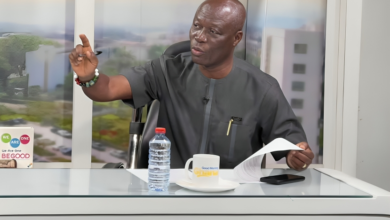Professor Enoch Opoku Antwi Advocates Lifestyle Audits to Strengthen Public Service Ethics

Governance expert and policy analyst Professor Enoch Opoku Antwi has emphasized the critical role of lifestyle audits in enhancing public service ethics in Ghana.
Speaking on TV3’s “Lifestyle Audits: Enhancing Public Service Ethics” on November 24, 2025, he highlighted the need for transparency, accountability, and cultural change in public office.
“Some lifestyles are so secretive that it is difficult to know them, but that is the essence of the lifestyle audit, to bring such cases to light,” Professor Antwi said. He underscored the importance of whistleblowing, urging citizens to report suspicious activities.
He also criticised the culture of expectation in public office that drives corruption. “Expectations corrupt people. When you get to public office, you are expected to acquire flashy assets. All these things should not be assumed; proper audits are necessary so that misappropriated monies can be retrieved,” he said.
Professor Antwi highlighted the role of social perceptions of wealth in fuelling corruption. “People are categorised based on the assets they hold, and this pedestal culture has contributed to rising corruption cases. We need to discard old values and adopt new ones that benefit the country, including truth-telling and honesty,” he stressed.
On asset declaration, Professor Antwi said current systems are ineffective. “Asset declarations in this country do not work; people merely submit papers without verification. Declarations should be verified. Our system is opaque, but technology could be leveraged to track assets and enforce transparency.”
He further warned against cash-based systems that facilitate illicit activities. “We have many cash systems that people exploit to conduct illegal transactions. These loopholes must be blocked to strengthen governance and ethics,” he concluded.
Professor Antwi’s comments highlight the need for systemic reform, stronger accountability, and a shift in cultural values to combat corruption and promote ethical public service in Ghana.




